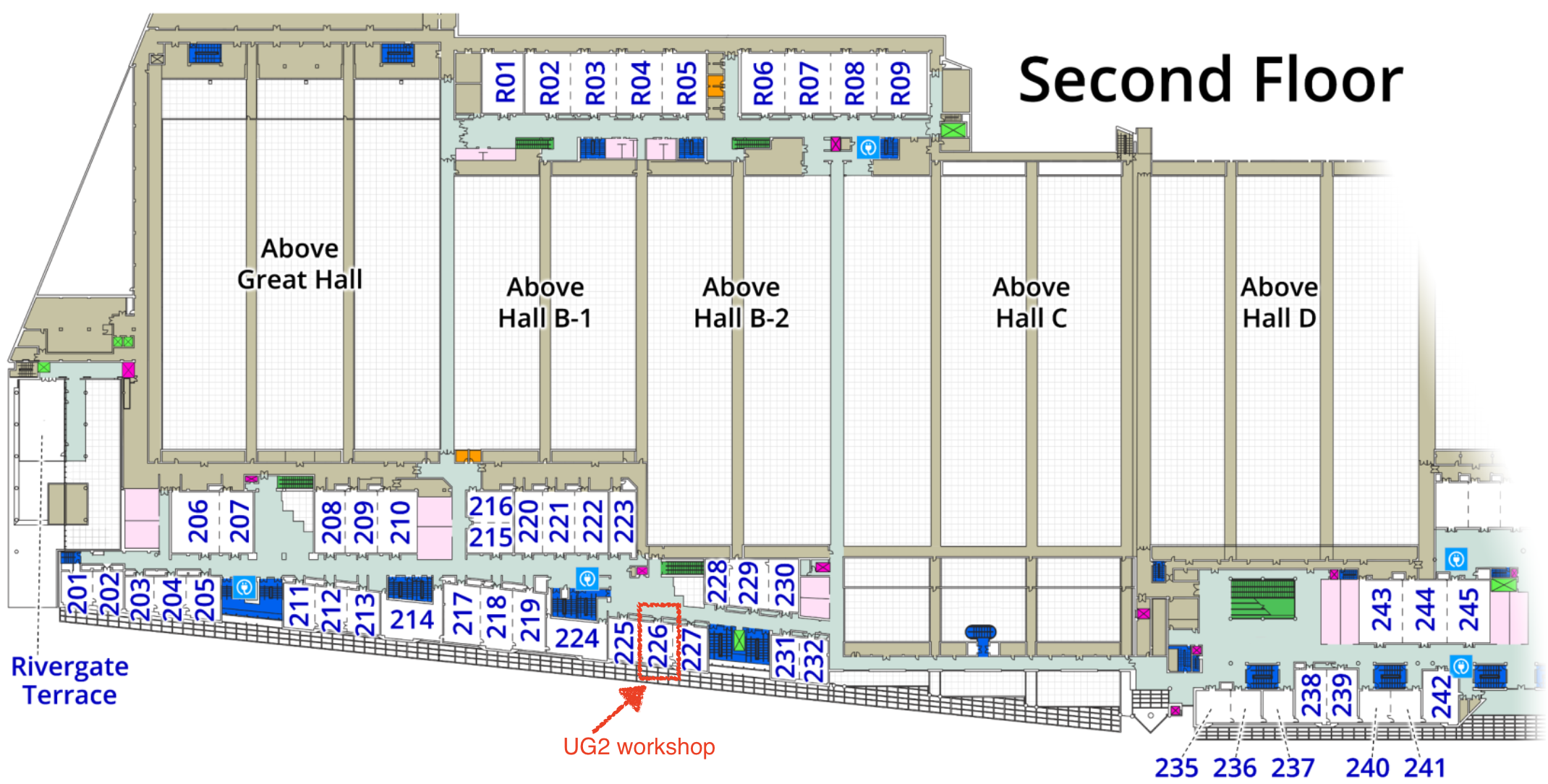Program
June 20, 2022 (Location: Room 226, 2nd Floor)
Workshop program (US Central Time)
Recorded videos (numberred by event order)
Qifeng Chen
Hong Kong University of Science and Technology
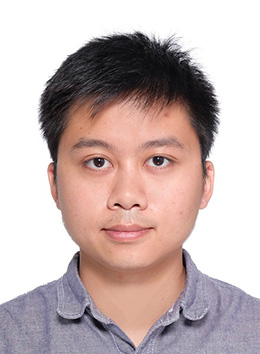
Qifeng Chen is an assistant professor of the Department of Computer Science and Engineering and the Department of Electronic and Computer Engineering at The Hong Kong University of Science and Technology. He received his Ph.D. in computer science from Stanford University in 2017. He has more than 50 papers published/accepted in top conferences and journals. He is named one of 35 Innovators under 35 in China in 2018 by MIT Technology Review. He won the Google Faculty Research Award 2018. He won the 2nd place worldwide at the ACM-ICPC World Finals in 2011 and a gold Medal in IOI 2007. He co-founded the startup Lino in 2017.
Ulugbek Kamilov
Washington University in St. Louis
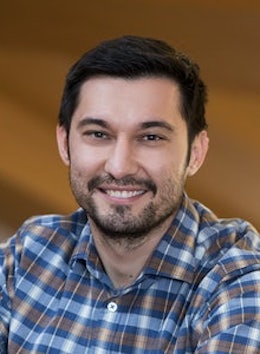
Ulugbek Kamilov is an Assistant Professor and the Director of Computational Imaging Group (CIG) at Washington University in St. Louis. His main research area is computational imaging with an emphasis on efficient acquisition, reconstruction, processing, and analysis of spatiotemporal data. His research interests include signal and image processing, large-scale optimization, machine learning, computer vision, and statistical inference.
Prof. Kamilov obtained his M.Sc. in Communication Systems and Ph.D. in Electrical Engineering in 2011 and 2015, respectively, from the École polytechnique fédérale de Lausanne (EPFL), Switzerland. He was an Exchange Student at Carnegie Mellon University (CMU), Pittsburgh, PA, USA, in 2007, a Visiting Student at Massachusetts Institute of Technology (MIT), Cambridge, MA, USA, in 2010, and a Visiting Student Researcher at Stanford University, Stanford, CA, USA, in 2013. From 2015 to 2017, he was a Research Scientist at Mitsubishi Electric Research Laboratories (MERL), Cambridge, MA, USA.
Prof. Kamilov is recipient of the IEEE Signal Processing Society’s 2017 Best Paper Award (with V. K. Goyal and S. Rangan). His Ph.D. thesis was selected as a finalist for the EPFL Doctorate Award in 2016. His work on Learning Tomography (LT) was featured in Nature “News and Views” in 2015.
Prof. Kamilov is a member of IEEE Technical Committee on Computational Imaging (2016-present). He was an Associate Editor for the SPIE Journal of Electronic Imaging (2017-2018). He served as a program chair for OSA Mathematics in Imaging 2019 in Munich, Germany. He served as a Computational Imaging area chair for IEEE Int. Conf. Acoustics, Speech and Signal Process. (ICASSP) 2017 in New Orleans, LA, USA, and 2019 in Brighton, UK. He has also co-organized a special session on “Large-Scale Computational Imaging with Wave Models” at ICASSP 2017, “Computational Microscopy” at BASP 2019, “Recent Advances in Signal Processing for Large-Scale Computational Imaging” at ICASSP 2019, and “Recent Progress in Computational Microscopy” at Electronic Imaging 2020. He is a member of IEEE, SIAM, and OSA.
Achuta Kadambi
University of California, Los Angeles
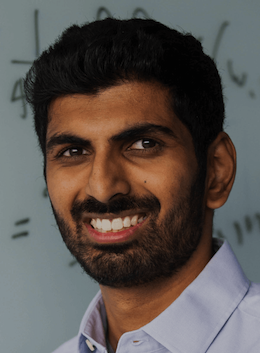
Achuta Kadambi received his PhD from MIT and joined UCLA where he is an Assistant Professor in Electrical Engineering and Computer Science. He teaches computer vision at UCLA (CS.188) and has co-authored a textbook in Computational Imaging, published by MIT Press in 2022. He received early career recognitions from NSF (CAREER), DARPA (Young Faculty Award), Army Research Office (YIP), Forbes (30 under 30) and is also co-founder of a computational imaging company, Akasha Imaging (http://akasha.im)
Ming-Hsuan Yang
University of California, Merced
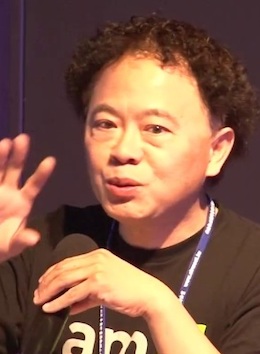
Ming-Hsuan Yang is a Professor in Electrical Engineering and Computer Science at University of California, Merced. He received the PhD degree in computer science from the University of Illinois at Urbana-Champaign in 2000. He studied computer science and power mechanical engineering at the National Tsing-Hua University, Taiwan; computer science and brain theory at the University of Southern California; and artificial intelligence and operations research at the University of Texas at Austin. He was a senior research scientist at the Honda Research Institute (formerly Honda Fundamental Research Labs) working on vision problems related to humanoid robots. In 1999, he received the Ray Ozzie fellowship for his research work. His research interests include computer vision, pattern recognition, artificial intelligence, robotics, and machine learning.
Yang serves as a program co-chair of IEEE International Conference on Computer Vision (ICCV) in 2019, program co-chair of Asian Conference on Computer Vision (ACCV) in 2014, and general co-chair of ACCV 2016. He has served as an associate editor of the IEEE Transactions on Pattern Analysis and Machine Intelligence (PAMI) from 2007 to 2011, and currently serves as an associate editor of the International Journal of Computer Vision (IJCV), Computer Vision and Image Understanding (CVIU), Image and Vision Computing (IVC) and Journal of Artificial Intelligence (JAIR).
He serves as an area chair for several conferences including IEEE Conference on Computer Vision and Pattern Recognition (CVPR) in 2008, 2009, 2014, and 2018; IEEE International Conference on Computer Vision (ICCV) in 2011, 2015 and 2017; European Conference on Computer Vision (ECCV) in 2014, 2016 and 2018; Asian Conference on Computer (ACCV) in 2009, 2010, and 2012; AAAI National Conference on Artificial Intelligence (AAAI) in 2011; and IEEE International Conference on Automatic Face and Gesture Recognition (FG) in 2011, IEEE Winter Conference on Applications and Computer Vision (WACV) in 2014, 2016 and 2018.
Yang received several paper awards including the 2018 CVPR Best Paper Honorable Mention; 2018 ACCV Best Student Paper Honorable Mention; 2017 ACM UIST Best Paper Honorable Mention; and 2014 iThings Best Paper. He is one of the Highly Cited Researchers by Clarivate Analytics in 2018-2020.
Yang received the Google Faculty Award in 2009, and the Distinguished Early Career Research Award from the UC Merced Senate in 2011. Yang is a recipient of the Faculty Early Career Development (CAREER) award from the National Science Foundation in 2012. In 2015, Yang receives the Distinguished Research Award from UC Merced Senate. He is a Fellow of the IEEE and Senior Member of the ACM.
Danna Gurari
University of Colorado Boulder
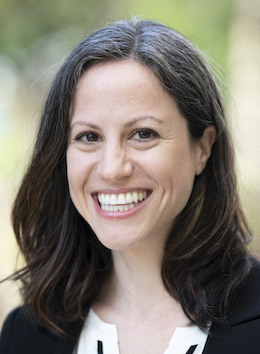
Danna Gurari is an Assistant Professor as well as Founding Director of the Image and Video Computing group in the Computer Science Department at University of Colorado Boulder. Her research interests span computer vision, machine learning, human computation, crowdsourcing, human computer interaction, accessibility, and (bio)medical image analysis. Her group focuses on creating computing systems that enable and accelerate the analysis of visual information. Her work has been recognized with the 2020 Best Paper Honorable Mention Award at CSCW, 2020 SIG-USE Innovation Award at ASIS&T, 2017 Best Paper Honorable Mention Award at CHI, Researcher Excellence Award from the Boston University Computer Science Department in 2015, 2014 Best Paper Award for Innovative Idea at MICCAI IMIC, and 2013 Best Paper Award at WACV. Gurari's research has been supported by the National Science Foundation, Silicon Valley Community Foundation's Chan Zuckerberg Initiative, Microsoft, Adobe, and Amazon. She received her Ph.D. from Boston University's Computer Science Department (advised by Dr. Margrit Betke), then served as a postdoctoral fellow in the Computer Science Department at University of Texas at Austin (supervised by Dr. Kristen Grauman), and then served as an Assistant Professor in the School of Information at University of Texas at Austin. Before that, she held industry positions at two leading technology companies: Boulder Imaging and Raytheon.^e
Daniel LeMaster
Air Force Research

Daniel LeMaster is the Technical Advisor for the Plans and Advanced Programs Division in the Sensors Directorate of the Air Force Research Laboratory. His purview includes a diverse portfolio of in-house and contracted research with a total project value of more than $500M. His personal research interests include polarimetric imaging, understanding and mitigating atmospheric effects, electro-optical systems characterization, image restoration and quality assessments, and performance modeling.
Russell Hardie
University of Dayton

Dr. Russell C. Hardie graduated Magna Cum Laude from Loyola College in Baltimore, Maryland, in 1988 with a B.S. degree in Engineering Science. He obtained an M.S. and Ph.D. degree in Electrical Engineering from the University of Delaware in 1990 and 1992, respectively. Dr. Hardie served as a Senior Scientist at Earth Satellite Corporation (Now MDA Federal) in Maryland prior to his appointment at the University of Dayton in 1993. He is currently a full professor in the Department of Electrical and Computer Engineering and holds a joint appointment with the Department of Electro-Optics and Photonics.
Dr. Hardie received the University of Dayton’s top university-wide teaching award, the 2006 Alumni Award in Teaching, presented in the name of the Alumni Association. Along with several collaborators, Dr. Hardie received the Rudolf Kingslake Medal and Prize from SPIE in 1998 for work on multi-frame image resolution enhancement algorithms. In 1999, he received the School of Engineering Award of Excellence in Teaching at the University of Dayton. He received first annual Professor of the Year Award in 2002 from the student chapter of IEEE at the University of Dayton and the Engineering Professor of the Year Award, from Epsilon Delta Tau in 1997.
Xiaohua Zhai
Google Brain
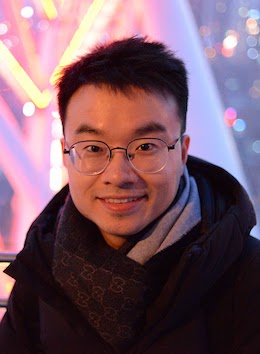
Xiaohua Zhai is a staff researcher at Google Research, Brain Team, Zurich. His research interests include representation learning and computer vision. He received the Ph.D degree from Peking University in 2014. As a joint first author, he proposed "Big Transfer (BiT)" and "Vision Transformer (ViT)" for large-scale representation learning. "Vision Transformer (ViT)" applies transformer architectures to image recognition with comparable performance to CNNs. The ViT-G model achieves the state-of-the-art performance on ImageNet. He has published papers in major conference proceedings, including ICCV, CVPR, ECCV, ICLR, ICML and NeurIPS.
Anqi (Angie) Liu
Johns Hopkins University
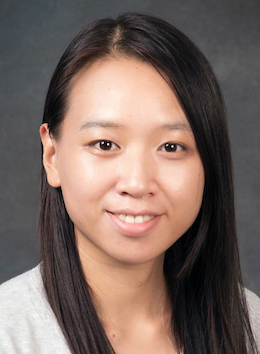
Anqi (Angie) Liu is an Assistant Professor in the Department of Computer Science at the Whiting School of Engineering of the Johns Hopkins University. She is broadly interested in developing principled machine learning algorithms for building more reliable, trustworthy, and human-compatible AI systems in the real world. Her research focuses on enabling the machine learning algorithms to be robust to the changing data and environments, to provide accurate and honest uncertainty estimates, and to consider human preferences and values in the interaction. She is particularly interested in high-stake applications that concern the safety and societal impact of AI.
She develops, analyzes, and applies methods in statistical machine learning, deep learning, and sequential decision making. One established line of work is in distributionally robust learning under covariate shift. Her recent projects cover topics in different types of distribution shifts, active learning, safe exploration, off-policy learning, fair machine learning, and cost-sensitive classification.
Previously, she completed her postdoc in the Department of Computing and Mathematical Sciences of the California Institute of Technology. She obtained her Ph.D. from the Department of Computer Science of the University of Illinois at Chicago. She has been selected as the 2020 EECS Rising Stars.
Footer
Qifeng Chen
Hong Kong University of Science and Technology

Qifeng Chen is an assistant professor of the Department of Computer Science and Engineering and the Department of Electronic and Computer Engineering at The Hong Kong University of Science and Technology. He received his Ph.D. in computer science from Stanford University in 2017. He has more than 50 papers published/accepted in top conferences and journals. He is named one of 35 Innovators under 35 in China in 2018 by MIT Technology Review. He won the Google Faculty Research Award 2018. He won the 2nd place worldwide at the ACM-ICPC World Finals in 2011 and a gold Medal in IOI 2007. He co-founded the startup Lino in 2017.
Ulugbek Kamilov
Washington University in St. Louis

Ulugbek Kamilov is an Assistant Professor and the Director of Computational Imaging Group (CIG) at Washington University in St. Louis. His main research area is computational imaging with an emphasis on efficient acquisition, reconstruction, processing, and analysis of spatiotemporal data. His research interests include signal and image processing, large-scale optimization, machine learning, computer vision, and statistical inference. Prof. Kamilov obtained his M.Sc. in Communication Systems and Ph.D. in Electrical Engineering in 2011 and 2015, respectively, from the École polytechnique fédérale de Lausanne (EPFL), Switzerland. He was an Exchange Student at Carnegie Mellon University (CMU), Pittsburgh, PA, USA, in 2007, a Visiting Student at Massachusetts Institute of Technology (MIT), Cambridge, MA, USA, in 2010, and a Visiting Student Researcher at Stanford University, Stanford, CA, USA, in 2013. From 2015 to 2017, he was a Research Scientist at Mitsubishi Electric Research Laboratories (MERL), Cambridge, MA, USA. Prof. Kamilov is recipient of the IEEE Signal Processing Society’s 2017 Best Paper Award (with V. K. Goyal and S. Rangan). His Ph.D. thesis was selected as a finalist for the EPFL Doctorate Award in 2016. His work on Learning Tomography (LT) was featured in Nature “News and Views” in 2015. Prof. Kamilov is a member of IEEE Technical Committee on Computational Imaging (2016-present). He was an Associate Editor for the SPIE Journal of Electronic Imaging (2017-2018). He served as a program chair for OSA Mathematics in Imaging 2019 in Munich, Germany. He served as a Computational Imaging area chair for IEEE Int. Conf. Acoustics, Speech and Signal Process. (ICASSP) 2017 in New Orleans, LA, USA, and 2019 in Brighton, UK. He has also co-organized a special session on “Large-Scale Computational Imaging with Wave Models” at ICASSP 2017, “Computational Microscopy” at BASP 2019, “Recent Advances in Signal Processing for Large-Scale Computational Imaging” at ICASSP 2019, and “Recent Progress in Computational Microscopy” at Electronic Imaging 2020. He is a member of IEEE, SIAM, and OSA.
Achuta Kadambi
University of California, Los Angeles

Achuta Kadambi received his PhD from MIT and joined UCLA where he is an Assistant Professor in Electrical Engineering and Computer Science. He teaches computer vision at UCLA (CS.188) and has co-authored a textbook in Computational Imaging, published by MIT Press in 2022. He received early career recognitions from NSF (CAREER), DARPA (Young Faculty Award), Army Research Office (YIP), Forbes (30 under 30) and is also co-founder of a computational imaging company, Akasha Imaging (http://akasha.im)
Ming-Hsuan Yang
University of California, Merced

Ming-Hsuan Yang is a Professor in Electrical Engineering and Computer Science at University of California, Merced. He received the PhD degree in computer science from the University of Illinois at Urbana-Champaign in 2000. He studied computer science and power mechanical engineering at the National Tsing-Hua University, Taiwan; computer science and brain theory at the University of Southern California; and artificial intelligence and operations research at the University of Texas at Austin. He was a senior research scientist at the Honda Research Institute (formerly Honda Fundamental Research Labs) working on vision problems related to humanoid robots. In 1999, he received the Ray Ozzie fellowship for his research work. His research interests include computer vision, pattern recognition, artificial intelligence, robotics, and machine learning. Yang serves as a program co-chair of IEEE International Conference on Computer Vision (ICCV) in 2019, program co-chair of Asian Conference on Computer Vision (ACCV) in 2014, and general co-chair of ACCV 2016. He has served as an associate editor of the IEEE Transactions on Pattern Analysis and Machine Intelligence (PAMI) from 2007 to 2011, and currently serves as an associate editor of the International Journal of Computer Vision (IJCV), Computer Vision and Image Understanding (CVIU), Image and Vision Computing (IVC) and Journal of Artificial Intelligence (JAIR). He serves as an area chair for several conferences including IEEE Conference on Computer Vision and Pattern Recognition (CVPR) in 2008, 2009, 2014, and 2018; IEEE International Conference on Computer Vision (ICCV) in 2011, 2015 and 2017; European Conference on Computer Vision (ECCV) in 2014, 2016 and 2018; Asian Conference on Computer (ACCV) in 2009, 2010, and 2012; AAAI National Conference on Artificial Intelligence (AAAI) in 2011; and IEEE International Conference on Automatic Face and Gesture Recognition (FG) in 2011, IEEE Winter Conference on Applications and Computer Vision (WACV) in 2014, 2016 and 2018. Yang received several paper awards including the 2018 CVPR Best Paper Honorable Mention; 2018 ACCV Best Student Paper Honorable Mention; 2017 ACM UIST Best Paper Honorable Mention; and 2014 iThings Best Paper. He is one of the Highly Cited Researchers by Clarivate Analytics in 2018-2020. Yang received the Google Faculty Award in 2009, and the Distinguished Early Career Research Award from the UC Merced Senate in 2011. Yang is a recipient of the Faculty Early Career Development (CAREER) award from the National Science Foundation in 2012. In 2015, Yang receives the Distinguished Research Award from UC Merced Senate. He is a Fellow of the IEEE and Senior Member of the ACM.
Danna Gurari
University of Colorado Boulder

Danna Gurari is an Assistant Professor as well as Founding Director of the Image and Video Computing group in the Computer Science Department at University of Colorado Boulder. Her research interests span computer vision, machine learning, human computation, crowdsourcing, human computer interaction, accessibility, and (bio)medical image analysis. Her group focuses on creating computing systems that enable and accelerate the analysis of visual information. Her work has been recognized with the 2020 Best Paper Honorable Mention Award at CSCW, 2020 SIG-USE Innovation Award at ASIS&T, 2017 Best Paper Honorable Mention Award at CHI, Researcher Excellence Award from the Boston University Computer Science Department in 2015, 2014 Best Paper Award for Innovative Idea at MICCAI IMIC, and 2013 Best Paper Award at WACV. Gurari's research has been supported by the National Science Foundation, Silicon Valley Community Foundation's Chan Zuckerberg Initiative, Microsoft, Adobe, and Amazon. She received her Ph.D. from Boston University's Computer Science Department (advised by Dr. Margrit Betke), then served as a postdoctoral fellow in the Computer Science Department at University of Texas at Austin (supervised by Dr. Kristen Grauman), and then served as an Assistant Professor in the School of Information at University of Texas at Austin. Before that, she held industry positions at two leading technology companies: Boulder Imaging and Raytheon.^e
Daniel LeMaster
Air Force Research

Daniel LeMaster is the Technical Advisor for the Plans and Advanced Programs Division in the Sensors Directorate of the Air Force Research Laboratory. His purview includes a diverse portfolio of in-house and contracted research with a total project value of more than $500M. His personal research interests include polarimetric imaging, understanding and mitigating atmospheric effects, electro-optical systems characterization, image restoration and quality assessments, and performance modeling.
Russell Hardie
University of Dayton

Dr. Russell C. Hardie graduated Magna Cum Laude from Loyola College in Baltimore, Maryland, in 1988 with a B.S. degree in Engineering Science. He obtained an M.S. and Ph.D. degree in Electrical Engineering from the University of Delaware in 1990 and 1992, respectively. Dr. Hardie served as a Senior Scientist at Earth Satellite Corporation (Now MDA Federal) in Maryland prior to his appointment at the University of Dayton in 1993. He is currently a full professor in the Department of Electrical and Computer Engineering and holds a joint appointment with the Department of Electro-Optics and Photonics.
Dr. Hardie received the University of Dayton’s top university-wide teaching award, the 2006 Alumni Award in Teaching, presented in the name of the Alumni Association. Along with several collaborators, Dr. Hardie received the Rudolf Kingslake Medal and Prize from SPIE in 1998 for work on multi-frame image resolution enhancement algorithms. In 1999, he received the School of Engineering Award of Excellence in Teaching at the University of Dayton. He received first annual Professor of the Year Award in 2002 from the student chapter of IEEE at the University of Dayton and the Engineering Professor of the Year Award, from Epsilon Delta Tau in 1997.
Xiaohua Zhai
Google Brain

Xiaohua Zhai is a staff researcher at Google Research, Brain Team, Zurich. His research interests include representation learning and computer vision. He received the Ph.D degree from Peking University in 2014. As a joint first author, he proposed "Big Transfer (BiT)" and "Vision Transformer (ViT)" for large-scale representation learning. "Vision Transformer (ViT)" applies transformer architectures to image recognition with comparable performance to CNNs. The ViT-G model achieves the state-of-the-art performance on ImageNet. He has published papers in major conference proceedings, including ICCV, CVPR, ECCV, ICLR, ICML and NeurIPS.
Anqi (Angie) Liu
Johns Hopkins University

Anqi (Angie) Liu is an Assistant Professor in the Department of Computer Science at the Whiting School of Engineering of the Johns Hopkins University. She is broadly interested in developing principled machine learning algorithms for building more reliable, trustworthy, and human-compatible AI systems in the real world. Her research focuses on enabling the machine learning algorithms to be robust to the changing data and environments, to provide accurate and honest uncertainty estimates, and to consider human preferences and values in the interaction. She is particularly interested in high-stake applications that concern the safety and societal impact of AI. She develops, analyzes, and applies methods in statistical machine learning, deep learning, and sequential decision making. One established line of work is in distributionally robust learning under covariate shift. Her recent projects cover topics in different types of distribution shifts, active learning, safe exploration, off-policy learning, fair machine learning, and cost-sensitive classification. Previously, she completed her postdoc in the Department of Computing and Mathematical Sciences of the California Institute of Technology. She obtained her Ph.D. from the Department of Computer Science of the University of Illinois at Chicago. She has been selected as the 2020 EECS Rising Stars.
